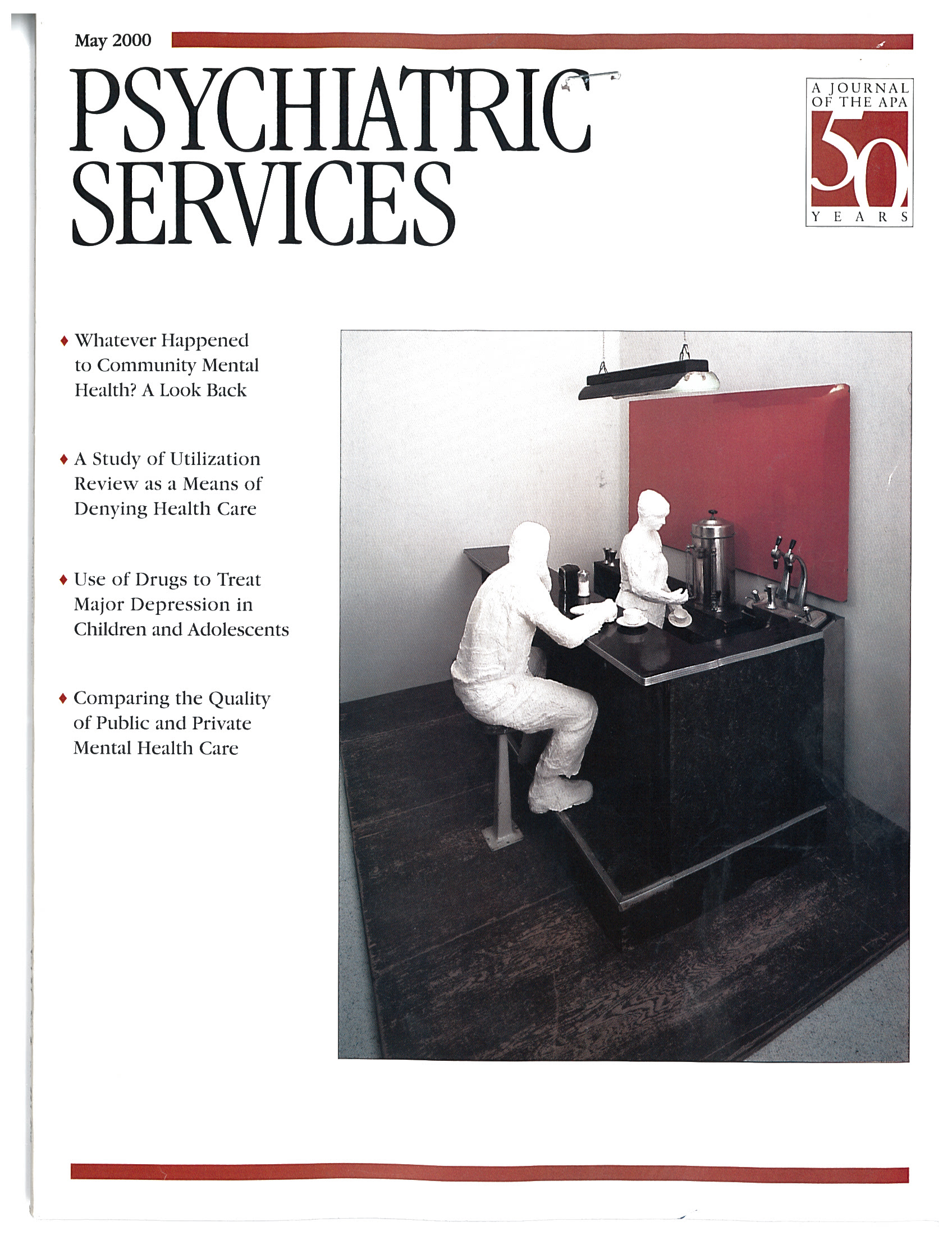Community Mental Health
This month, as part of our 50th anniversary observance, we reprint an article by Walter E. Barton, M.D., entitled "Trends in Community Mental Health Programs" from the September 1966 issue. In his article Dr. Barton noted the significance of the federal government's entry into the delivery of mental health services in the early 1960s with the passage of the community mental health centers legislation (see page 611). In a commentary on the article, Steven S. Sharfstein, M.D., describes how later changes in the community mental health centers program greatly reduced the federal government's leadership role and led to heightened ambivalence about the federal versus the state role in the support of community mental health services (see page 616). In the Taking Issue column, Roger Peele, M.D., blames the fragmentation of responsibility between federal, state, and local governments for the deterioration of public psychiatric care (see page 557).
Utilization Management
Utilization management is one aspect of managed care that has sparked considerable controversy, as Alan Koike, M.D., and his coauthors point out in their case study of the review process in one large organization. They found that 57 percent of the health plan members who used network providers underwent at least one type of review, and 11 percent had five or more reviews. In almost 92 percent of the reviews, care was authorized at the level requested, and in less than 1 percent was service denied. The findings lead the authors to question whether the cost of the review process is justified (see page 621).
Uses of Valproate
Valproate is one of several mood-stabilizing drugs that have been used in the treatment of bipolar disorder. However, only a few reports have described their use among patients with schizophrenia, the focus of a study in this issue by Leslie Citrome, M.D., and associates. All patients in the study had schizophrenia and were hospitalized in New York state psychiatric centers in the five-year period from 1994 to 1998. The proportion who received a mood stabilizer increased from 26 percent in 1994 to 43 percent in 1998. Valproate was most commonly prescribed despite little published evidence of its effectiveness, leading the authors to conclude that controlled clinical trials are urgently needed to test the efficacy of mood stabilizers in treating schizophrenia (see page 634).
Case Management and Drug Dependence
The comparative effectiveness of an intensive clinical case management model and an extended brokerage case management model that linked patients with support services was examined in a study of two groups of persons with serious mental illness—those who had a substance dependence disorder and those who did not. The authors, Barbara E. Havassy, Ph.D., and associates, found that the intensive clinical case management model was more effective for persons without substance dependence but that both models were relatively ineffective for drug-dependent persons. On the basis of their findings, the authors conclude that integration of substance abuse treatment within the context of case management may be more important than the type of case management intervention used (see page 639).
Access to Services in Managed Care
Access to mental health services has become an increasing concern with the proliferation of managed care. Ellen Weissman, M.D., M.P.H., and associates tested the hypothesis that a direct relationship exists between insurance companies' expenditures on behavioral health care, measured as the per-member per-month treatment cost, and access to care, measured as the proportion of plan members who use services annually. They found a direct relationship between claims costs and treatment prevalence rates, suggesting that at low levels of spending, access to care may be compromised. Access may be limited by high copayments and deductibles, stringent authorization-of-care practices, and incentives to reduce referrals to specialty treatment (see page 664).
Briefly Noted…
• In the Personal Accounts column, column editor Jeffrey L. Geller, M.D., reviews first-person accounts by patients and family members published in the journal during its first 25 years (see page 575).
• A study in the Best Practices column found that found individuals with severe mental illness in rural areas are hospitalized less frequently than those in more populous areas. The implications for service planning are examined (see page 603).
• This month's books section opens with reviews of The Role of the State Hospital in the Twenty-First Century by four mental health administrators (see page 680).



